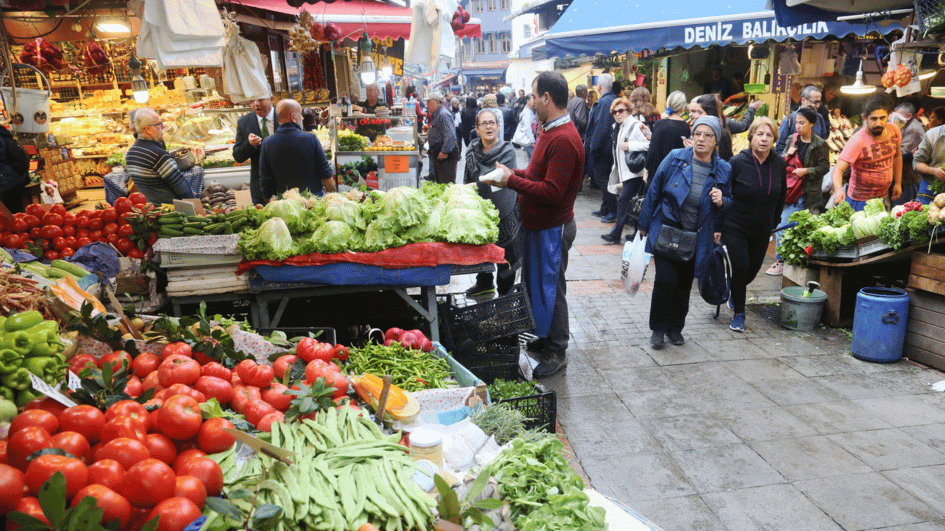In memory of Maria of Pontus
“The ethics of the media are what the boss says, brother Yusuf,” warned Sedat Örsel on Facebook early in the morning Tuesday. During a nice online chat I wrote him my intention was to write something on the “press ethics lecture of Prof. Korkmaz Alemdar, Maria from Pontus of writer Petros Markaris and whether she was a victim or criminal, and the immense pain a person feels when forced or compelled to abandon his/her homeland.”
That was indeed how Alemdar concluded his press ethics course at the Antalya basic journalism training program of the Press for Freedom project of the Journalists Association. “There is not one single line in any press ethics text written anywhere in the world which outlines the responsibilities of the media boss; all the texts state how a journalist must act,” the professor stressed in explaining why the existing ethics texts were all deficient.
While there might be no free dinner, a journalist cannot be sold for a dinner either. Thus, rather than what the intention behind the gift might be – which cannot be easily estimated – the actual value must be the scale. The rules of the game must be discussed with a rational approach. If a journalist accepts an expensive rug as a “gift” from a carpet dealer, he cannot be expected to write most of the rugs sold by that dealer are “top-quality, hand-woven pieces” when they are indeed manufactured by machines.
A gift must be something “affordable” for the journalist. A pen might be a good gift for example, but there are pens sold at the price of a second-hand car. To identify the difference between a gift and a bribe is a very difficult road to walk.
Let’s imagine a young reporter from a small local newspaper in Antalya. If that reporter is invited on a trip to a Far East tourist paradise for a conference, should he accept or turn down the invitation? Can that be a breach of ethics of the profession? If he returns the invitation, how can he achieve the accumulation of experience needed to comment on the state of affairs of Turkish tourism with a perspective of what’s happening in the international arena, as his paper could never afford such trips? That is why perhaps we have tens of different texts regarding media ethics regulating journalists’ behavior, but none touching on the responsibility of the media bosses.
At a dinner hosted by Ambassador Kyriakos Loukakis and his spouse in honor of eminent Istanbul-born Greek writer Petros Markaris, this ethics issue popped up unexpectedly. An academic friend, instead of discussing whether Maria of Pontus – who Markaris said was someone who lived with his family until she died at the age of 90 – was a victim or a criminal, asked me, “Why were you so critical of the Turkish Cypriot members of the Cyprus Academic Dialogue conference?”
Maria was a Pontus Greek-Turk compelled to immigrate to Istanbul. She was lucky, as most of her people could not stop in Istanbul, compelled to continue on to Greece or elsewhere. As refugees or as displaced persons, they must have incredible memories and an accumulation of massive trauma. Today, looking back at the times of the Lausanne Treaty and the tragic Sept. 6-7, 1955, shame of Turkey, how many Turks don’t feel sad? A part of this great Anatolian heritage was forced to go, and since then we have been deficient. Can we say anything different for the lost Armenian element of Anatolia? Is it indeed important how it is described? Is it not a reality that Armenians of this land were compelled to leave? Has not this country been deficient since they left? For those who left, death must be the easiest of the sufferings they must have endured. Can anyone imagine the trauma they suffered because they were left without a homeland?
Some Turkish Cypriots, showing typical “Stockholm syndrome” behavior, have forgotten what they suffered from the Greek Cypriot pogrom application on them and have been in efforts to appease their “masters.” That attitude is sickening me, as it should sicken anyone with some degree of morality.
Wanting peace is something different from surrendering, as surrender can bring about only palliative peace and eventually immense further suffering.
At the dinner, Istanbul Greek-Turk, proud Greek-Athenian Markaris, looking direct into my eyes, was expressing his great pleasure in seeing “Turks and Greeks which were never ever so close, so friendly,” but it was he as well who masterly penned the immense suffering of the plight of Pontus Greeks, in the few words of Maria.
Self-esteem, integrity and honesty must be the cornerstones of any deal, and of course the main ingredients of an honest friend or foe.
It was an honor to sit side-by-side at a dinner table with a “friend Markaris” and discuss the past and future “of our nations.”











